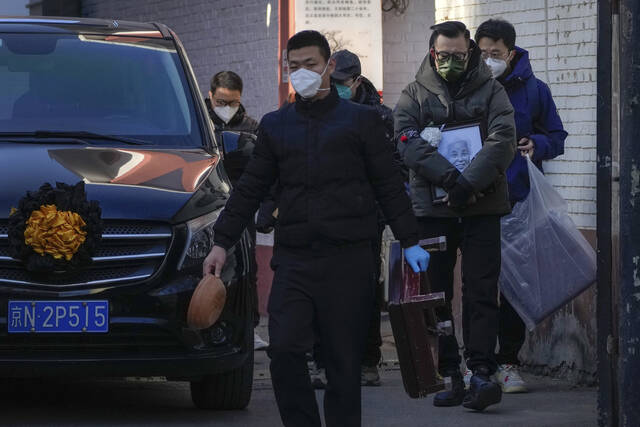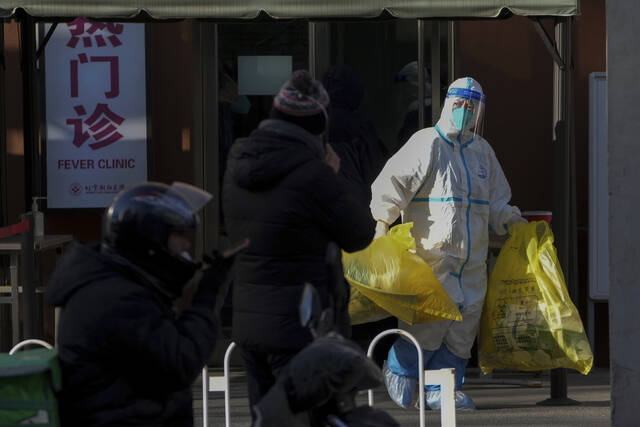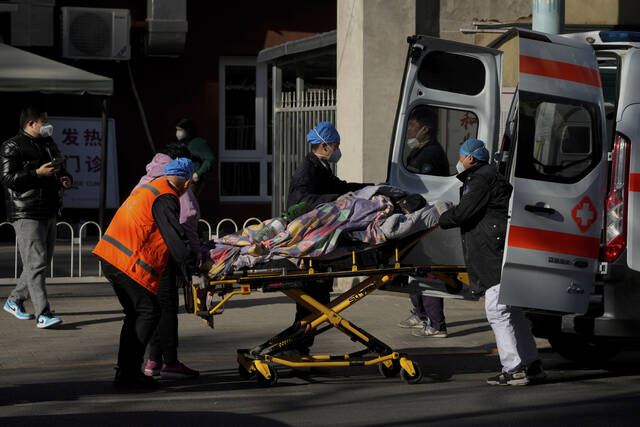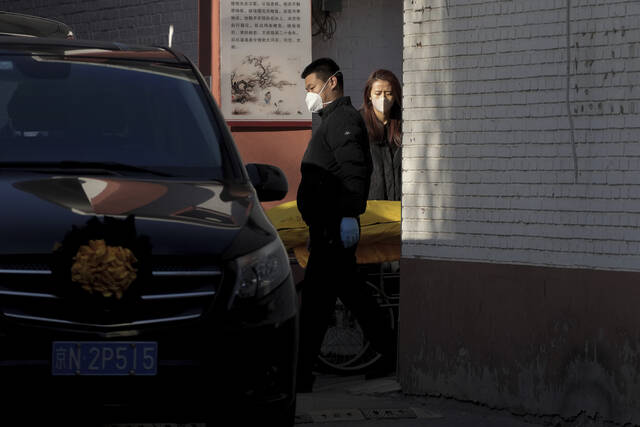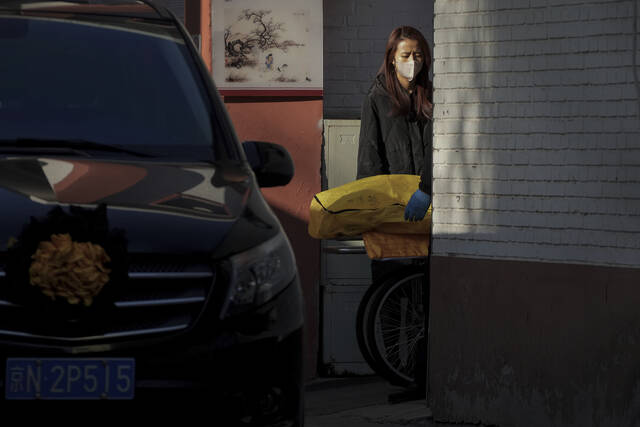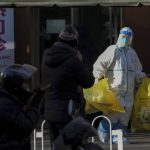BEIJING — China’s health authorities on Monday announced two covid-19 deaths — the country’s first reported fatalities in weeks — amid an expected surge of illnesses after it eased its strict “zero-covid” approach.
Unofficial reports point to a widespread wave of new coronavirus cases, and relatives of victims and people who work in the funeral business said deaths tied to COVID-19 were increasing. Those people spoke on condition of not being identified for fear of retribution.
Before Monday’s two reported deaths — both in Beijing — China had not reported a death from covid-19 since Dec. 4.
With those fatalities, the National Health Commission raised China’s total to 5,237 deaths from covid-19 in the past three years, out of 380,453 cases of illness. Those numbers are much lower than in other major countries but also are based on statistics and information-gathering methods that have come into question.
Chinese health authorities count only those who died directly from covid-19, excluding people whose underlying conditions such as diabetes and heart disease were worsened by the virus.
In many other countries, guidelines stipulate that any death where the coronavirus is a factor or contributor is counted as a covid-19-related death.
China had long hailed its restrictive “zero-covid” approach as keeping case numbers and deaths relatively low, comparing itself favorably to the U.S., where the death toll has topped 1.1 million.
Yet the policy of lockdowns, travel restrictions, mandatory testing and quarantines placed China’s society and the national economy under enormous stress, apparently convincing the ruling Communist Party to heed outside advice and alter its strategy.
The easing began in November, and accelerated after Beijing and several other cities saw protests over the restrictions that grew into calls for President Xi Jinping and the Communist Party to step down — a level of public dissent not seen in decades.
On Dec. 14, the government said it would stop reporting asymptomatic covid-19 cases since they’ve become impossible to track with mass testing no longer required. Most testing is now carried out privately, with those showing only mild symptoms allowed to recuperate at home without being forced into a centralized quarantine center.
The lack of data has made it more difficult to grasp the scale of the outbreak or its direction. However, a major drop in economic activity and anecdotal evidence of the virus’ spread point to a growing caseload, while health experts have projected a possible major wave of new infections and a spike in deaths over the next month or two, particularly among the elderly.
China is trying to persuade reluctant seniors and others at risk to get vaccinated, apparently with only moderate success. The other major concern is shoring up health resources in smaller cities and the vast rural hinterland ahead of January’s Lunar New Year travel rush, which will see migrant workers returning to their home towns.
Numbers of fever clinics have been expanded in both urban and rural areas and people have been asked to stay home unless seriously ill to preserve resources. Hospitals are also running short on staff, and reports say workers have been asked to return to their posts as long as they aren’t feverish.


